Table of contents
Meet 10 teas to improve the flu!
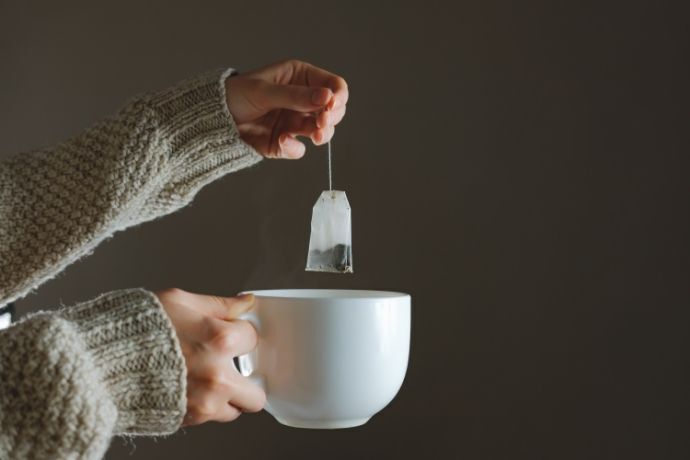
The flu is a very common disease not only in Brazil, but worldwide. One of the best ways to prevent it is through a good eating routine. However, when we already have the virus in the body, a great strategy is to consume natural and home remedies, such as teas.
There are several wonderful infusions for flu that promise to defeat the virus in a very short time, helping you ease the unpleasant symptoms and restoring vitality.
However, not just any drink that serves for flu, since each one has different and specific properties. Continue reading the article and see a selection with 10 teas for you to defeat the flu once and for all.
Understanding about flu teas
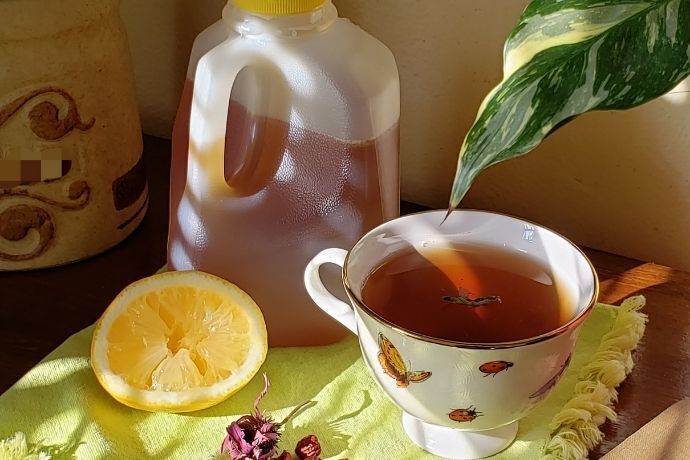
Flu symptoms are often a nightmare, extremely annoying and even incapacitating in some cases. Here's everything you need to know about the disease and how teas can help a lot.
What is the flu?
Influenza is a disease caused by the Influenza virus type, which attacks the respiratory system, leaving the nose, throat and lungs infected. Thus, it causes a series of symptoms, such as sore throat, runny nose, runny nose, fatigue, fever, cough, among others.
Viruses undergo several mutations, one can say that they are in constant transformation. This is one of the main reasons that make a person have the disease more than once, even during the same year.
Besides, this illness can present very different levels of severity, depending on each organism. Generally, the flu evolves favorably, disappearing spontaneously between 7 to 10 days after the first symptoms appear.
Possible causes of influenza
Since the flu is transmitted by a virus that affects the airways, one of its main causes is contact with secretions, sneezing and coughing of an infected patient. When touching a contaminated doorknob, for example, we can take our hand to our nose, facilitating the entry of the virus.
Moreover, this pathogen can survive for a period suspended in the air. Therefore, experts recommend that all environments are well ventilated, so that there is air exchange and circulation.
This suggestion is very important during fall and winter, since we leave all the closed spaces because of the cold. Another fundamental point is to keep well ventilated the places with agglomeration, such as public transportation, to avoid that "breathed air".
Flu Dangers and Care
Flu is a disease that can affect everyone in different ways. In some situations, the illness can worsen and develop into pneumonia.
As a viral infection, it can also bring other complications and be fatal, especially among risk groups. Check out which individuals are more likely to develop a more severe case:
- Children under 5 years of age;
- Adults over 65 years of age;
- Pregnant and postpartum women;
- People with a weakened immune system;
- Those with chronic diseases such as asthma, diabetes, and heart, kidney and liver disease.
Benefits of tea for flu
Teas for flu have numerous beneficial properties that help strengthen the immune system, as well as anti-inflammatory and analgesic compounds that ease the unpleasant symptoms.
By the way, the steam from the infusion relieves typical respiratory discomforts, such as runny nose, stuffy nose and catarrh, working as a kind of inhalation. The water present in the teas also helps fight dehydration.
Some foods stand out in the fight against the flu. Lemon, garlic, ginger, honey and echinacea have powerful natural compounds that help you eliminate this virus and resume your routine. Check out some foolproof recipes below.
Honey and lemon tea
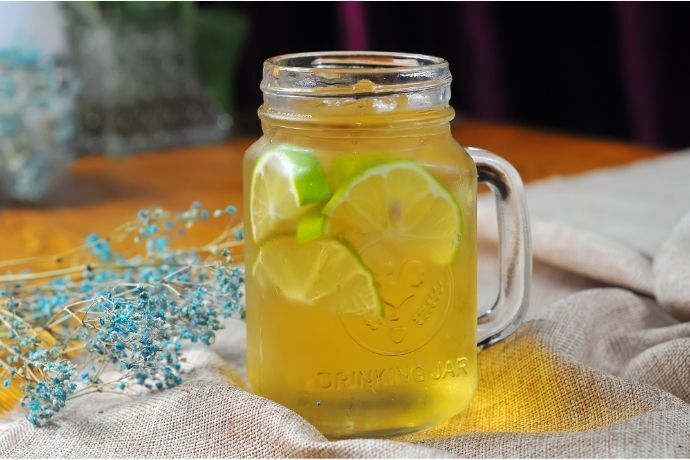
Honey and lemon tea is a wonderful option to fight the flu. This is because the drink relieves the unpleasant symptoms of the disease and still warms the body on the coldest days of winter. Learn more below.
Indications and properties of honey and lemon
The union of lemon and honey makes this tea a great natural remedy against the flu. This is because the combination relieves sore throat and decongests the nose, improving breathing. Lemon is a citrus fruit that detoxifies the body and increases immunity, since it is a source of potassium.
In addition, it acts by decreasing the symptoms of fatigue. Honey presents antioxidant, anti-inflammatory and antibacterial properties. Thus, it decreases inflammation in the throat and lungs. Another guaranteed point is a relaxing night's sleep.
Ingredients
To make honey and lemon tea, you will need:
- Broth of 1 lemon;
- 2 tablespoons of honey;
- 1 cup boiling water.
How to make honey and lemon tea
The first step in making this tea is to add the honey to boiling water, stirring well until smooth. Then, add the lemon and drink it right away.
It is very important to add the lemon last and drink the infusion immediately so as not to lose the benefits of vitamin C. For the treatment of influenza, it is recommended to drink honey and lemon tea for up to 3 times a day.
Cautions and contraindications
Honey and lemon tea requires some care in consumption. This is because honey, when in excess, can harm the body. Moreover, if you are diabetic, you must redouble attention or even avoid eating the food.
The drink is contraindicated for babies up to 1 year because of honey, which can cause severe poisoning, because their digestive system is still very immature. People suffering from gastritis should also avoid this tea.
Ginger, lemon and propolis tea

The ginger, lemon and propolis tea is highly recommended in cases of flu, because it relieves nasal congestion and eases headaches. Find out everything about this infusion below.
Indications and properties of ginger, lemon and propolis
The mixture of ginger, lemon and propolis is very powerful, full of beneficial properties. The tea made with these ingredients prevents nasal congestion, stops runny nose and reduces discomfort in the body.
Ginger is a super-efficient food in cases of flu because it has analgesic, antipyretic and antibacterial properties. In addition, the infusion with propolis is perfect for those who suffer from constant headaches, since it is very powerful in combating headache and decreases the chances of crises to return.
Ingredients
The ingredients needed to prepare ginger, lemon and propolis tea are:
- 1/2 liter of water;
- Peel of half a lemon;
- 1 small piece of ginger;
- 20 drops of propolis extract.
How to make ginger, lemon and propolis tea
Wash the lemon well, remove the peel from half of it (avoid the white part so as not to make the drink bitter) and set it aside. Peel the ginger as well.
Place the water, lemon peel and ginger in a pan and boil for approximately 5 minutes. Turn off the heat and let the mixture infuse for another 5 minutes. Finally, add the propolis extract.
Cautions and contraindications
The ginger, lemon and propolis tea needs to be consumed with caution in cases of individuals with heart problems, hemorrhagic and thyroid disorders. In addition, those who suffer from diabetes and hypertension should avoid this drink, because there is the risk of worsening the condition.
It is also recommended that people who do not have any of these diseases take the tea in moderation, as it is quite strong.
Honey tea with watercress

Watercress is often eaten in salads, but when prepared as a tea with honey, it is delicious and powerful in combating the unpleasant symptoms of the flu. See more below.
Indications and properties of honey and watercress
The honey and watercress tea forms a perfect duo to stop the flu virus. This is because it has antioxidant and anti-inflammatory action, relieving discomfort and respiratory symptoms such as cough, runny nose and sore throat.
Watercress is a source of vitamin C, very important nutrient to strengthen immunity, optimizing the body's defenses. In addition, honey has the ability to reduce the multiplication of pathogens. Another advantage is that it is rich in probiotics.
Ingredients
The preparation of honey tea with watercress is very simple and only needs 3 ingredients, check it out:
- 1/2 cup watercress stalks and leaves;
- 1 tablespoon of honey;
- 100 ml of water.
How to make honey tea with watercress
The first step is to put the water to boil. As soon as it boils, turn off the heat, add the watercress and cover the pot. Leave it to infuse for about 15 minutes. Then, just strain it and sweeten it with honey. Wait until it gets warm and enjoy all the benefits of this drink.
Cautions and contraindications
Honey tea with watercress is contraindicated for pregnant women, as there is a great risk of causing miscarriage.
Another group that should avoid drinking honey are children under 3 years old, which can develop infant botulism, a potentially fatal disease caused by the spores of the Clostridium botulinum bacteria, which may be present in honey.
In addition, diabetics need to consult a doctor before consuming the drink, as honey has a significant amount of fructose.
Garlic tea
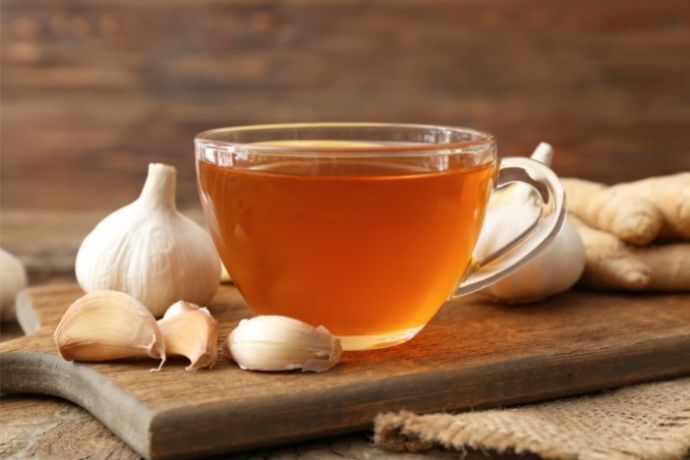
Garlic tea is one of the best home remedies to get rid of the flu. Many people turn up their noses at the smell of the drink, but the following recipe usually pleases everyone, even the most demanding. Check it out!
Indications and properties of garlic
Garlic tea is one of the most popular natural treatments to fight the flu. This happens because the food has several beneficial properties, including antimicrobial, analgesic and antiflu actions, besides being an excellent lung antiseptic.
The therapeutic potential still helps in the treatment of sore throat. It also presents expectorant action, which helps to eliminate and prevent the accumulation of mucus. Moreover, allicin, a powerful garlic compound, stimulates the production of white blood cells, strengthening the immune system.
Ingredients
To make garlic tea, you will need:
- 3 cloves of garlic;
- 1 tablespoon of honey;
- Broth of half a lemon;
- 1 cup of water.
How to make garlic tea
The preparation of the tea is very simple, just crush the garlic cloves and put them in a pot, along with water. Bring to a boil and let it boil for about 5 minutes. Then add the lemon juice and honey. Consume immediately, still warm, not to lose the beneficial properties of this drink.
Cautions and contraindications
Garlic tea is not recommended for individuals suffering from low blood pressure, since one of its main actions is to lower blood pressure. In addition, recently operated patients or those with any type of bleeding disorder should avoid consuming this infusion.
Another point to watch out for is the daily dosage. Like most teas, you need to take it in moderation, because if ingested in large quantities, it can cause gastric reactions.
Eucalyptus tea
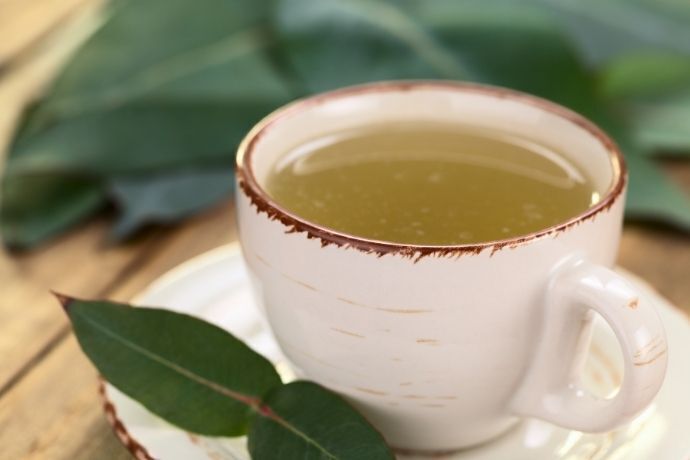
Eucalyptus tea is not so famous for fighting the flu, but it is very potent. This is because it acts as an antioxidant, improving the immune system and taking care of respiratory tract infections. Find out more below.
Indications and properties of eucalyptus
Being rich in tannins, flavonoids, aldehydes and volatile oils, eucalyptus tea is perfect for getting rid of the flu. It has antiseptic, antispasmodic and antimicrobial properties. In fact, one of its active ingredients, cineol, works as a powerful expectorant, relieving coughs and helping to eliminate phlegm more easily.
It also decongests the airways as a whole. Another compound, terpineol, is anti-inflammatory and analgesic, thus alleviating discomfort and deflating the respiratory tract.
Ingredients
Eucalyptus tea is very easy to prepare and only needs 2 ingredients, check it out:
- 1 cup of water;
- 4 g of dried eucalyptus leaves (about 1 tablespoon).
How to make eucalyptus tea
The first step in making eucalyptus tea is to boil the water. Once it boils, pour it into a cup and add the eucalyptus leaves. Cover and let it infuse for 5 minutes.
Then, strain and drink 2 to 3 times a day. It is worth remembering that this tea can also be used as inhalation or mouthwash, as long as it is prepared with fresh leaves, instead of dried ones.
Cautions and contraindications
Eucalyptus tea is contraindicated during pregnancy. In addition, people who have gallbladder and liver problems need to consult a doctor before consuming the drink. By the way, children under 12 years should not do inhalation with eucalyptus tea, as there is a risk of causing allergies and shortness of breath.
Also be careful that the infusion does not come into direct contact with the skin of the face, as it can cause an allergic reaction.
Echinacea tea
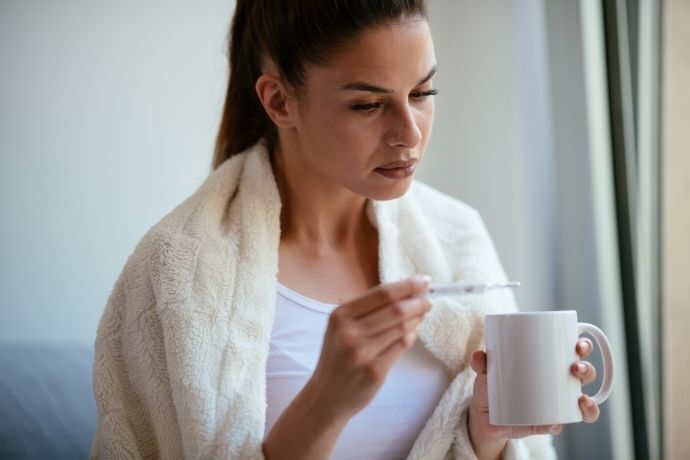
Echinacea, also known as cone flower, purple or rudbequia, is an excellent natural remedy against the flu. This plant is rich in alkamides, flavonoids and polysaccharides, with anti-inflammatory and anti-allergic properties. Here's how to make a wonderful tea below.
Indications and properties of echinacea
Echinacea tea is a very powerful drink, since it helps to strengthen the immune system. In addition, by promoting sweating (increased perspiration), it is able to reduce fever. Therefore, it is perfect to combat the unpleasant symptoms of colds and flu.
The infusion fights infections that affect the respiratory tract, caused by viruses or bacteria. This is because it has detoxifying, anti-inflammatory, antioxidant and antimicrobial action.
Ingredients
To prepare echinacea tea, you will need:
- 1 cup boiling water;
- 1 tablespoon of dried leaves of echinacea.
How to make echinacea tea
The preparation of this tea is very easy and practical. Place boiling water in a cup and add the echinacea then. Cover and leave to infuse for about 10 minutes. After this period, strain and drink when warm.
Cautions and contraindications
Echinacea tea can cause some side effects, such as nausea, vomiting, stomach pain, diarrhea, sore throat, muscle pain, headache, dizziness, confusion, insomnia, and unpleasant taste in the mouth.
Allergic reactions are rare, but there may be cases with itching or hives and worsening of asthmatic attacks. In addition, echinacea is contraindicated for children, pregnant and lactating women and individuals with tuberculosis or autoimmune diseases such as rheumatoid arthritis, lupus or psoriasis.
Elderberry tea

Elderberry tea is very popular, being consumed worldwide due to its health benefits. Its leaves help improve immunity and also fight fever. Check out more below.
Indications and properties of elderberry
The elderberry is a medicinal plant that helps to boost the body's defenses. In addition, it promotes sweating (increased body perspiration) and favors the reduction of fever. The tea prepared with its leaves has antiviral and antimicrobial properties, being perfect to fight the flu.
This drink also facilitates the elimination of phlegm, freeing up the airways and reducing excess mucus. The infusion is a source of several nutrients, such as vitamin C and antioxidants, with anti-inflammatory action.
Ingredients
Elderberry tea can be made with a touch of linden, a medicinal plant that helps clear phlegm and puts you in a good mood. Check out the ingredients needed:
- 2 tablespoons elderberry leaves;
- 1 tbsp (tablespoon) of linden;
- 1 cup boiling water.
How to make elderberry tea
To prepare the tea, put the elderberry leaves and linden in a cup. Then, add boiling water, cover and let it sit for about 10 minutes. After that time, just strain it. You can take this infusion up to 3 times a day.
Cautions and contraindications
Elderberry tea has numerous benefits, but it can cause some side effects if consumed in excess. The most common symptoms are allergic reactions, but it can also cause gastrointestinal problems, such as nausea, vomiting, and diarrhea.
The infusion should not be consumed by pregnant women, nursing mothers and nursing mothers. In addition, you should be careful with the elderberry fruit, which, if ingested in exaggerated quantities, can have a laxative and even toxic effect.
Star anise tea
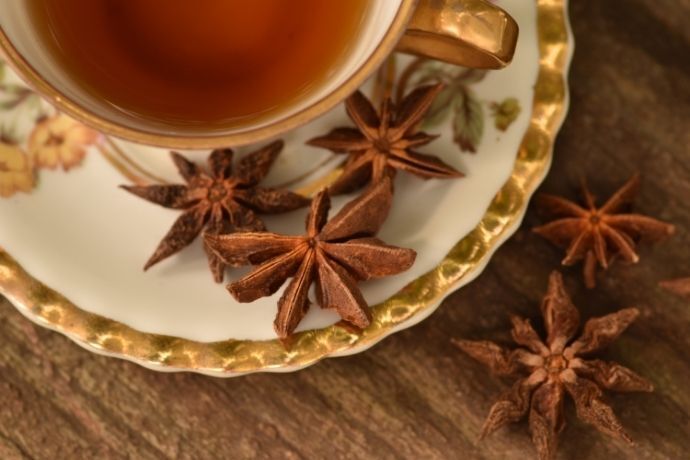
The star anise is a spice used mainly in culinary preparations, but its medicinal properties make this spice is also consumed in the form of teas. Discover how it can help you get rid of the flu.
Indications and properties of star anise
The star anise is a very powerful aromatic plant, since it is considered a natural deposit of shikimic acid, a compound with antiviral properties capable of eliminating the flu virus. This substance, incidentally, is used in the pharmaceutical industry for the production of the drug oseltamivir, known as Tamiflu.
This remedy is the main treatment to cure infections caused by Influenza A (H1N1 and H3N2) and B viruses. In addition, star anise acts as an antioxidant, thanks to the presence of phenolic compounds. Thus, it strengthens the immune system, inhibiting the action of free radicals.
Ingredients
To make the star anise tea, you will need only 2 ingredients, check it out:
- 1 teaspoon ground star anise;
- 250 ml of boiling water.
How to make star anise tea
The preparation of this tea is very simple, just put the boiling water in a container and add the star anise. Cover the container and let it stand for about 10 minutes.
You can consume the infusion 2 to 3 times a day.
Cautions and contraindications
Star anise is often used in cooking and is very safe. However, its tea can cause some side effects when consumed in excess. Some people may experience nausea and other gastrointestinal problems.
In addition, this spice is contraindicated for pregnant women, nursing mothers and children. This happens because there are still no studies that prove the safety and effectiveness, especially if we consider the effects in the medium and long term.
Dandelion tea
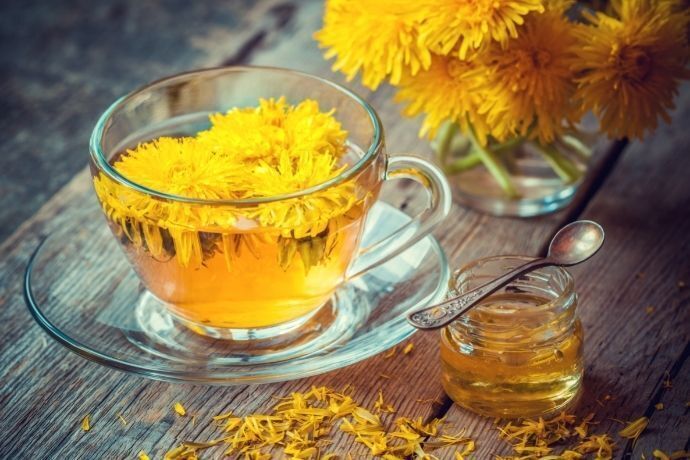
The dandelion, also called coronet, pint and taroxac, has a large amount of nutrients. With this, it helps strengthen the immune system, in addition to treating colds and flu. Learn more below.
Indications and properties of dandelion
Dandelion is a source of vitamins A, B, C and D. In addition, it is rich in minerals such as iron, potassium and zinc. This combination makes the food ideal for increasing the body's defenses.
According to a research conducted in China in 2011, the tea of this plant has proven to have therapeutic properties, being able to more quickly eliminate the Influenza virus from our body.
Furthermore, dandelion contains phenolic compounds, flavonoids, carotenoids and oligofructans that function as antioxidants, anti-inflammatory and hepatoprotective.
Ingredients
For dandelion tea, you will need:
- 1 tbsp (tablespoon) of crushed dandelion root;
- 200 ml boiling water.
How to make dandelion tea
The preparation of the tea is very simple and quick. The first step is to put boiling water in a container, then add the dandelion root. Cover the container and let it infuse for about 10 minutes.
Then, strain the drink and let it warm. This tea can be consumed up to 3 times a day. It is worth noting that if you have gastrointestinal problems, it is recommended to drink before meals.
Cautions and contraindications
Dandelion is contraindicated for individuals who have bile duct obstruction, intestinal occlusion, acute gallbladder inflammation, or presence of peptic ulcer. In addition, use during pregnancy and breastfeeding is not recommended.
Also avoid taking it in conjunction with lithium-containing medications, diuretics, and hypoglycemic agents, as dandelion can potentiate the effects. Be careful with use in excessive amounts, as it can trigger gastrointestinal or allergic reactions.
Pineapple tea
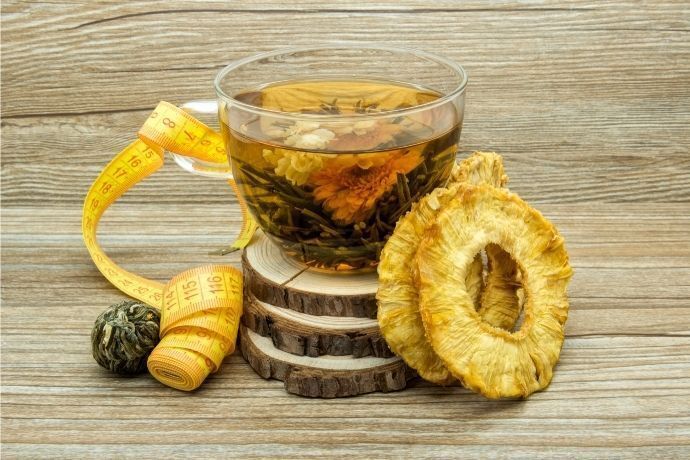
Pineapple peel tea is a very powerful drink, since it preserves all the nutritional properties of the fruit. Therefore, it is perfect for the auxiliary treatment of several diseases, including the flu. Check it out.
Indications and properties of pineapple
Pineapple tea is delicious and perfect for treating infections linked to the airways, such as colds and flu. This is because the infusion helps to reduce coughing and, thanks to its expectorant action, eliminates phlegm.
In addition, the fruit has anti-inflammatory properties, soothing sore throat and nasal problems. A curious fact is that the pineapple peel has 38% more vitamin C than the pulp. For this reason, it is recommended that the tea is prepared with the peel of the fruit.
Ingredients
Pineapple tea gets a delicious flavor and aroma with this recipe. Check it out:
- 1.5 liters of water;
- Peels from a pineapple;
- 5 cloves;
- 1 cinnamon stick;
- 10 mint leaves.
How to make pineapple tea
The first step in making this tea is to put the water in a pot and bring it to a boil. Once boiling, add the pineapple peel (which should be washed and sanitized). Then add the cloves and cinnamon. Lastly, add the mint, which gives a touch of freshness to the drink.
Cover the pan and let the mixture boil for about 5 minutes or until the mint is wilted and the water has already changed colour. Then, simply strain. It can be served hot or cold.
Cautions and contraindications
Pineapple tea is contraindicated for individuals suffering from stomach problems, such as gastritis, ulcers or reflux, since the fruit is very acidic. Those with high blood pressure should also avoid consuming the drink.
In addition, it is not recommended for pregnant and lactating women, as it may interfere with the baby's health and harm the quality of breastfeeding.
As it is a fruit with marked flavor and properties, it needs to be consumed in moderation to avoid side effects, such as the development of food intolerances and unpleasant reactions, like heartburn.
Enjoy the benefits of the best teas for flu!

Teas for flu are one of the best options to strengthen the body and get rid of the virus. As a natural treatment method, the infusion is friendlier, and it also has a wonderful taste and aroma.
Moreover, these drinks provide other benefits that go beyond the relief of flu symptoms. Medicinal plants have several nutrients and antioxidants in their composition, helping to reduce the chances of developing many diseases.
However, each tea should be consumed with common sense and moderation, since all have contraindications that can harm those with some diseases. Therefore, it is important to consult a doctor before starting treatment.
It is also worth remembering that no tea is a substitute for medical evaluation. If symptoms persist or are more severe, do not hesitate to seek help.

